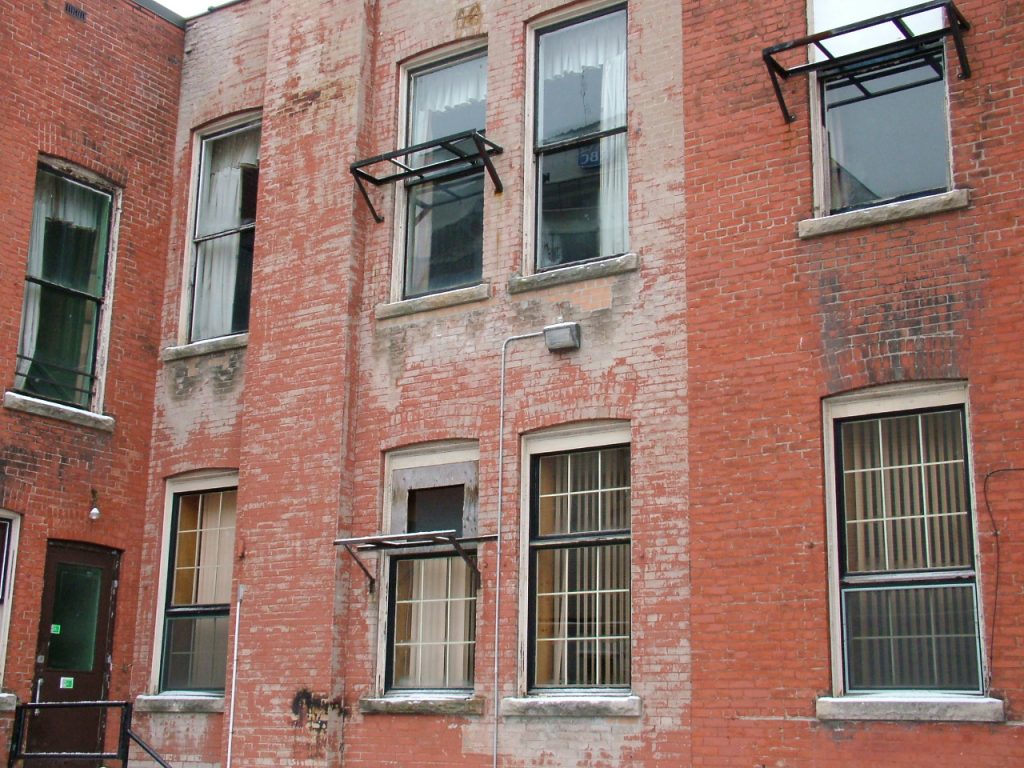
There’s a lot of hype about Kitchener-Waterloo being the next big thing, and I really think it could be (even though I’m not really sure what being “the next big thing” means).
City council started discussing the idea of creating an arts hub downtown, and I saw an opportunity to get on the radar of influential people in the community. By standing front and centre, I hoped the arts would get bumped up on the municipal agenda and be included in whatever economic strategy comes with this development.
It’s clear that arts and culture is fundamental to the growth of a community, and although condo towers and tech companies appeared to be a priority, the idea of an arts hub has gotten a lot of people talking. Why not? If everyone is moving here, they need something to do, right?
This was probably the point when I started to ask myself if I was complicit in this hype that is, ultimately, gentrification.
Kitchener, Ontario is my home. The region is experiencing incredible growth with entrepreneurs and start-ups relocating to the area, and condo towers going up. I’m not complaining. In fact, I have recently snatched up a condo townhouse in an industrial neighbourhood slated for redevelopment.
When I first moved to downtown Kitchener, it was considered a questionable and depressed neighbourhood. But it was so affordable!
Apartments, studios, and space were so available and accessible. Something interesting was always happening. Music festivals had much more of an indie vibe (and I mean indie in the old-school sense) and there seemed to be fewer restrictions on what could or couldn’t happen in a venue. The community feel was incredible, with so many people into so many things. Maybe I was young and naïve and missed details, but downtown Kitchener felt like a cool and hip place to live.
I remember seeing an incredible concert by Diamanda Galas during this time in an old church. I was struck by the range of people coming together to experience this rare performance: classically trained musicians, goth music fans, people from the Greek community, even members of the neighbouring church congregation! It was this bringing together of disparate communities in an unconventional concert venue that still inspires me to create space for great art and great conversation.
When we talk about an arts hub, I remember this exact experience and wonder if we can recreate that feeling of culture in a place that has transformed so much.
As the downtown was redeveloped, small businesses started opening up, followed by a complete do-over of our main strip to make it pedestrian friendly. People started moving downtown, renovations started happening, and before we knew it, we became home to Google’s Canadian head office. Things seemed to spiral from there and what once felt like a marginalized neighbourhood became the “hub of innovation”.
On the one hand, this growth has drawn a lot of activity to our downtown, and I wouldn’t be surprised if our average age demographic has dropped by a decade or two. I can say for certain that the work we do at MT Space has been greatly influenced by this total shift, and we are constantly strategizing about how to engage a completely different demographic of young professionals.
But what about the marginalized communities we initially created the MT Space with?
The marginalized communities that used to call downtown home are becoming even more marginalized as the affordable spaces to live are pushed towards the edges of the city. The spaces that we are occupying as artists are still in a downtown core that is becoming increasingly unaffordable and alienating – with a high-end culture made for a certain income bracket.
So when we talk about an arts hub downtown, I ask myself, are we contributing to further marginalizing the marginalized? Or can we actually move towards erasing the margins and reclaiming space in the heart of our city where not only artists, but our extended communities can meet, talk, and play? Can we recreate that culture I experienced when I saw Diamanda Galas transform a church into a haunting theatrical space?
I’m not really sure. I would like to do so, but there is only so much we can do on our own in a place that is changing so rapidly. Sometimes I think maybe no one is at fault for triggering this gentrification, that this is an inevitable evolution that happens in every city. For now, I’ll just try to keep up, wave my arms to remind people that we’re here, and keep trying to push the fringes of our neighbourhood back into the core. Who knows? Maybe an arts hub will remind us of how we got here and inspire us to move forward while looking back.









